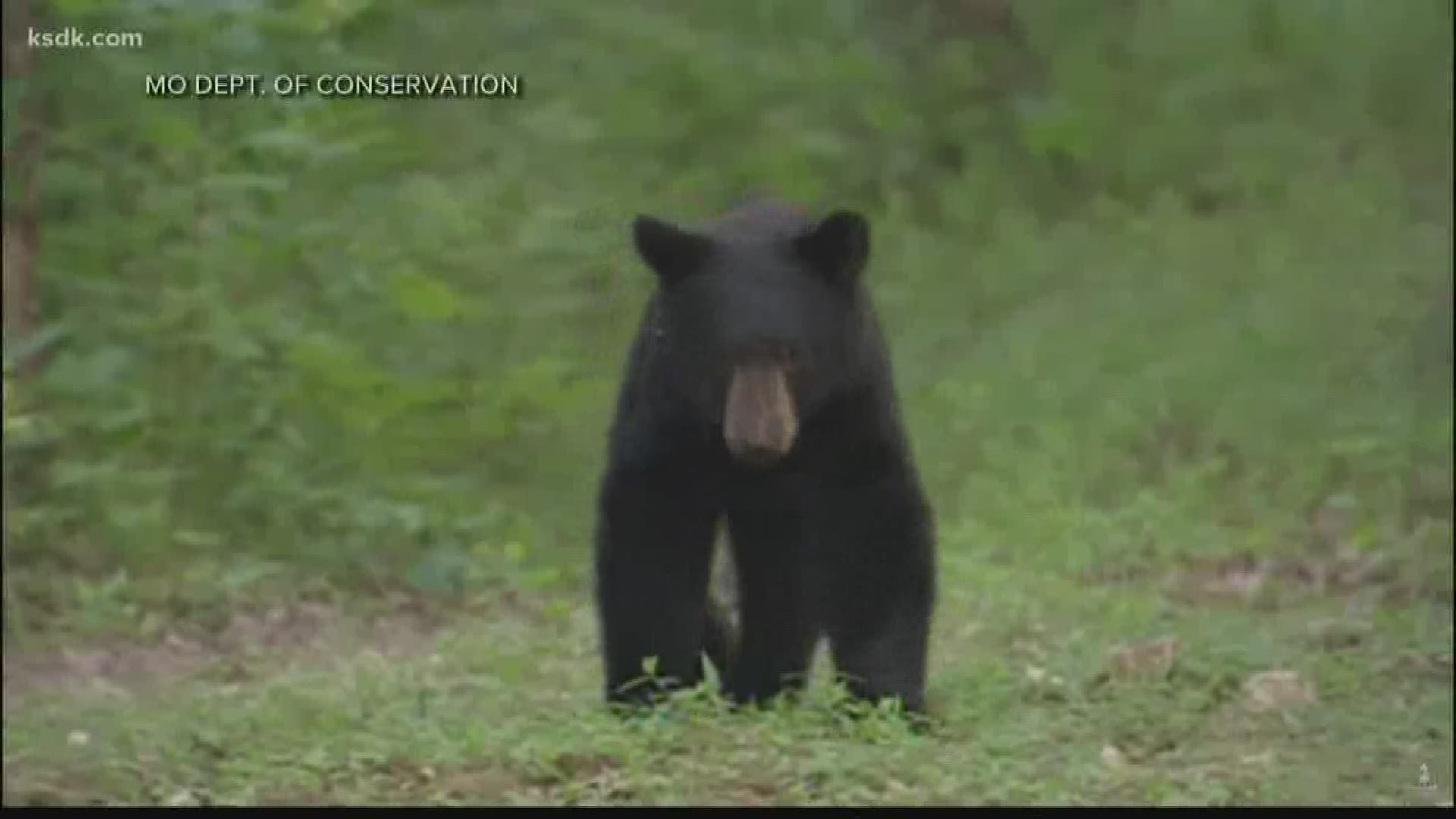ST. LOUIS – The black bear population in Missouri has nearly doubled in the last seven years, according to the Missouri Department of Conservation.
In 2012 at the beginning of their black bear study, the Missouri Department of Conservation estimated there were 350 black bears in the state.
By early summer of this year, they estimated there were 500 to 800 black bears in Missouri. Dan Zarlegna with the Missouri Department of Conservation said the population is growing at a healthy rate because the state provides a good habitat for bears, including food and water sources.
Most of the bears used to be south of Interstate 44, but much of the growth has been immediately south and west of St. Louis.
The Missouri Department of Conservation said the black bears have been using a large wooded corridor between their traditional Ozark habitat and the St. Louis area to move into the area. Officials are also seeing population growth in the Poplar Bluff and Lake of the Ozarks area.
So how do they track the bear population?
The Missouri Department of Conservation said they used four primary methods to track the population.
Trapping, tranquilizing and then putting radio collars with GPS so they can track their movements.
‘Hair snare’ using barbed wire in the forest. The barbed wire snares their hair for DNA analysis.
Citizen sightings
Den Studies – counting the bears while they hibernate in their dens in the winter
Officials also want to remind people to be ‘bear aware.’ People should avoid feeding the bears to avoid potential conflict. There will be an informational meeting about the growing population on July 30 from 6 p.m. to 8 p.m. in the auditorium at Powder Valley Nature in Kirkwood.
For more information, click here
BE BEAR AWARE WHILE HIKING OR CAMPING
Stay alert and avoid confrontation
Make noise so you don’t surprise a bear – clap, sing, or talk loudly. Travel in a group if possible.
Pay attention to your surroundings and watch for bear sign such as tracks or claw or bite marks on trees.
Keep dogs leashed.
If you see a bear, leave it alone! Do not approach it. Make sure it has an escape route.
If you encounter a bear up close
Never corner a bear – make sure it has an escape route.
Back away slowly with your arms raised.
Speak in a calm, loud voice.
Do not turn your back to the bear.
Walk away slowly – DO NOT RUN.
Odors attract bears
Keep a clean campsite. Follow these guidelines when camping in black bear country.
Store all food and toiletries like toothpaste and deodorant in a secure vehicle or strung high between two trees.
Store garbage securely in a vehicle or strung high between two trees. Never burn or bury garbage or food waste.
A FED BEAR IS A DEAD BEAR
Never feed a bear!
Feeding bears makes them lose their natural fear of humans, and teaches them to see humans as food providers. They will learn to go to places like homes, campsites, and neighborhoods to look for food, instead of staying in the forest.
A bear that has gotten used to getting food from humans may become aggressive and dangerous. When this happens, the bear has to be destroyed.
Help bears stay wild and healthy, and keep yourself and your neighbors safe. Don’t feed bears.
BE BEAR AWARE ON YOUR PROPERTY
Never feed a bear, on purpose or accidentally.
Don’t leave pet food sitting outside. Feed pets a portion they’ll eat at each meal and remove the empty containers.
Store garbage, recyclables, and compost inside a secure building or in a bear-proof container until the day of trash pick-up.
Keep grills and smokers clean and store them inside.
Don’t use birdfeeders from April through November in bear country. If you must, hang them at least 10 feet high and 4 feet away from any structure.
Use electric fencing to keep bears away from beehives, chicken coops, vegetable gardens, orchards, and other potential food sources. Get more detailed tips on black bear control, including electric fencing.
Contact your county Conservation Agent for help with making your property unwelcoming to bears.

